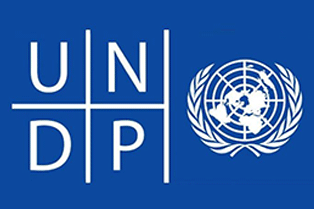When we decide to mediate…
2018-02-21
What is empathy? Symbolist-interactionists George Meade and others discuss empathy as process of copying others’ roles which is the essence of socialization. Empathy is the ability to understand behavior and attitude of other people. Weber considers idea of empathy in “verstehen”, meaning understanding and by feelings guarantees adequate penetration of others’ emotional, irrational actions.
You may have the question – what connection the empathy and mediation may have?
It is hard to find the dispute where either party is absolutely true. When the person can condolence the other person, to see the events with other’s eyes for a short period of time – this may be the basic point and help to avoid the conflict or to successfully finish already existing dispute. There is a distinct category of the dispute when the claim of the party may be determined only with material value, however, even in such cases claim, as an economic category, does not exist in the pure way and I think, the claim is the attitude. For instance, when we buy the telephone in the shop and it has a defect, we argue from the pure economic point of view regarding the paid price. However, in real we may be irreconcilable with the fact that and it may be more insulting that we were cheated. Hence, the claim transfers from economic to psychological category which gives advantage to one that has stronger will to possess when there are alternatives.
We may be mad or disappointed. At that time, it is hard to sit at the negotiation table. Therefore, some people prefer to solve the dispute in courts, have the representative who will be leading the process. Later this brings regret and disappointment. However, we are often so sure in our “truth” and have such a firm position and faith that we can doom value of the relationship created during the years and never think about the reasons for causing the disagreement.
Therefore, the parties often have the fear to begin the dialogue. Even when the parties are represented by the attorneys during the court proceedings, making any offer is perceived as weakness which may be used by the other party in its favor.
But what happens when we analyze that our rough attitude causes more pain or this attitude does not give anything? We think about what could be think or feel from the point of view of the other party.
If we can think about this, in similar circumstances, maybe we would agree without any hesitation and would want to solve the dispute by mediation.
In mediation, mediator is the person who leads the dialogue of the parties and creates instinctive connection based on trust between the parties. It may be stated that mediator is the person pushing us to empathy. (How would you behave in his place? What can the other party feel?)
During the mediation sincere and open attitude of the parties display at the private meetings when the party individually meets the mediator, discusses and reveals all possible alternatives finally aimed to solve the dispute. Himself/herself the mediator keeps confidentially details revealed at the private meeting with the party, in some cases, helps the party to determine in what form and limits will it be reasonable to reveal disclosed information to the other party. How real, executable, reasonable and flexile may the expectations of the parties be.
In some cases, negotiates may not be successful when we do not have the talent to negotiate. Attorneys often focus on legal problems rather than identifying and realizing real interests of the parties. With such a strict approach, disagreement and different views of the parties become highlighted and their mutual interests stay out of the negotiations.
Mediation helps the parties to improve alternative dispute resolution offers, more choices the parties have, better are chances of success.
If you will be able and perceive the circumstances not only in your “context of law” but from the view (or perspective) of the participant of the negotiations, then you will definitely find the resource to get mutually beneficial decision without mutual accusations.
In order for the mediation be successful, it is essential to prudently participate in it.
When you decide to mediate, try to find the skill of empathy in yourself which does not mean inevitability of concession or compromise. This means presenting the position of the other party more realistically and objectively even though it may be unshakeable and inaccessible at the beginning. This skill is the prerequisite for solving the dispute successfully.
When you decide to mediate, you understand that ideal relationships do not exist, people make mistakes intentionally and unintentionally. Therefore, it is better to think about the solution, not the problem. It is said that when you leave the debate, the conflict is over. Without any doubt sympathy, sharing emotions and feeling someone else is the best way to avoid the conflict or the settle already existing dispute peacefully and painlessly.
MA Student at TSU
Faculty of Law























